United Arab Emirates -

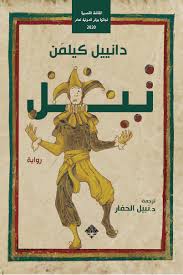
He is a traveling artist, actor, singer, acrobat, clown, provocateur, mysterious, and rebellious. His handshake has an effect like the touch of Satan, and his smile splits the clouds. He is always watching you, and you do not see him when you turn to him, but your life will never go back to what it was. He spent his childhood in an ordinary German village, trying to balance on any rope he saw, until he had to run away; Because his father, who was a miller, an alchemist, and a researcher of the mysteries of the world, was involved in a dispute with the Jesuits. He wanders with the daughter of the village baker. He roams the villages, deceiving death. On the battlefields, he runs faster than artillery shells. He plays his tricks in the dark forests where goblins roam. On his journey, in which he roams the country torn apart by the Thirty Years’ War, he meets many: the writer Falkenstein, who wants to get to know... The close-up war, the depressed executioner Thielmann, the juggler Pirmin, the talking donkey Origen, and the exiled King and Queen of Winter: Friedrich the German, and Lise the English, who were the direct cause of the outbreak of a war that changed Europe, and the physician-poet Paul Fleming, who insisted on writing poetry in primitive German that did not... Nobody understands it, the fanatic Tsimond, and the wise dragonologist Athanasius Kircher; Whose destinies all converge in that they one day met that mysterious character who one day decided that he would not die, the hero of all ages: Till Uhlenspiegel.
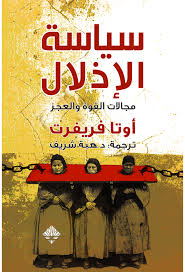
The traditional perception sees that criminals have violated the social order and public peace. Therefore, they must be punished publicly, as the presence of spectators confirms and justifies the judge’s ruling on the one hand, and achieves the authority’s goal of deterring others from repeating the crime on the other hand. This deterrence does not come only from the fear of physical harm due to punishment, but also from the fear of feeling shame and disgrace. Which can only be achieved with witnesses to the humiliation taking place. But how are societies formed that accept such practices, or even demand them? What political systems allow humiliation, and what systems try to prevent it? Can we say that humiliation is only related to the “Dark Middle Ages” period, or has the “bright,” luminous, and enlightened modernity brought with it new methods of shame of its own and invented new practices of humiliation? In a stunning analysis of historical and contemporary events, German historian Uta Frevert shows the role that humiliation played in building modern society, and how humiliation and the sense of shame it generates were used as a means of control, from the worlds of politics to school education, and that the art of humiliation is not only a thing of the past, but has evolved to suit... The changes of the twenty-first century, in a world where humiliation is not only from the political forces that control us, but also from our peers.
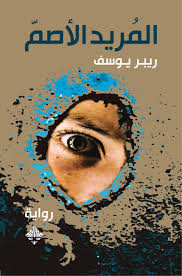
What is war without the shouts of demonstrators, the roar of warplanes, and the screams of detainees in torture rooms? How do beings and actions appear without their sounds? What is the need for a doorbell? What is the sound of food cooked in a pot? How can a deaf child-young person digest such a silent, muffled world? These are some of the questions raised by the book “The Deaf Aspirant,” which describes the image of the world after deleting its audio file, and tells the diaries of a father who raised his deaf son alone. Relying on various narrative methods, Reber Youssef sheds light on the complex aspects of the fatherhood-childhood duality, including complex feelings, such as: love, hate, fear, and the desire to be free from the burden of this bond between the two, or to defend and strengthen it. It is a book about a father who voluntarily abandons the sounds of the world if they do not reach his son’s ears, and about a son who rediscovers himself to bury his deafness and fear forever.
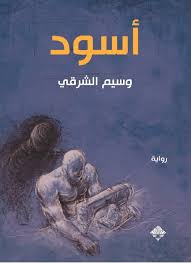
Moving between Zabaltani, Dawaila, Saydnaya, and all the way to Istanbul, Ahmed Aswad - a tailor on a sewing machine - tells the story of his life as it appears to him, a life full of transformations and first experiences: the beginning of falling in love, traveling, and planning a murder. In a special language that may seem neutral, but it is sarcastic and full of emotion, Wassim Al-Sharqi explores forgotten corners of the lives of a marginalized segment of Syrians before 2011, such as: smugglers on the Lebanese border, or sewing factory workers, and patrons of bodybuilding clubs and bars in old Damascus. “Black” is a journey to delve into the motivations and drivers that direct people’s behavior and destinies, and an attempt to trace the source of the blackness that surrounds our lives and settles in our souls, difficult to disappear.
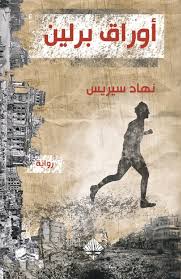
Moving between the ancient markets of Aleppo and the bars of Berlin, the hero of the novel “Berlin Papers” rediscovers himself time after time, opens his hands to various experiences and new people, and listens closely waiting for someone to tell him a new story so that he can write it down. We see him escaping from a failed love story through exploration. The history of Germany in the two world wars: the first and the second, to get lost in memories, pictures, and maps, between western and eastern Aleppo and between western and eastern Berlin, and to flip through the paintings of the German painter Otto Dix, which embodied the ugliness of the First World War; In order to forget the images of destruction and killing that were preserved in his memory. In his novel, Nihad Siris moves lightly between places, people, and events, within one flowing text, and his work hides behind a documentary character that explores the history of wars and city architecture, and then surprises the reader with an unexpected dose of imagination about marvels and supernatural powers that help people overcome the scourges of war by escaping towards... New beginnings. Can a person escape from a war in his country by diving into the history of another war that took place in another time and place?
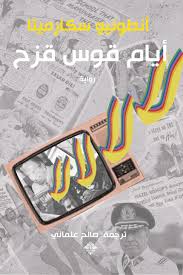
Fifteen years after his military coup and his control of power, General Bionche decides to respond to popular and international pressure and hold a presidential referendum that determines his fate. The Minister of the Interior summons advertising expert and former detainee Adrian Bettini. To convince him to lead the campaign to make Pyoncé a success, the leader of the opposition coalition consisting of sixteen discordant parties proposes to Bettini a crazy idea: running the election campaign for the “No” campaign, which is embodied only in a short television advertisement. Instead of the usual focus on the massacres, detainees, and the horrors of the past period, Bettini suggests that the title of the campaign be: Joy is Coming. Will a fifteen-minute announcement succeed in overthrowing a dictatorial rule that lasted fifteen years? In an optimistic, poetic style, Scarmetta tells a true struggle story of hope and joy, in the darkest of times, in a country longing for freedom.
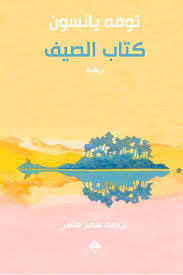
Sofia is a bold and hot-tempered child, unlike her grandmother, who takes care of her after her mother's death. Every summer, you go on a new adventure together of a different kind: exploring parts of the island you live on, meeting new types of birds, swimming in the dangerous bay without Sofia’s father knowing, sleeping in a tent, building a miniature model of Venice, and writing a book about insects. . Without addressing their true feelings, they spend their days in endless conversations and discussions about everything: the meaning of life and death, the nature of God and Satan, heaven and hell, and the concepts of love, family, friendship, and tolerance. By creating an integrated world on a small, isolated island, Tova Jansson writes - in a magical style, and simple sentences loaded with profound concepts - a sweet novel about the friendship between a child who begins her journey in life, and her grandmother, who is approaching the end of this journey.
By Antonio Muñoz Molina / Translated by: Muhammad Foley
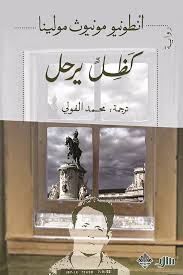
After Martin Luther King was assassinated, Ray was able to escape with a fake passport, and as he moved from one country to another, he kept reading the newspapers, delighted to see his name on the list of the FBI's "ten most dangerous criminals." His journey finally lands him in Lisbon, where he spends ten days waiting for a visa to enter Angola. But Lisbon was also the city that inspired Antonio Muñoz Molina, his most famous novel, and when he now decided to write a novel about Ray, the city became witness to three alternating stories: a murderous man on the run from justice, a writer struggling to find his literary voice, and the writer himself. Thirty years later, he reflects on his life, the life of his hero, and the form of the novel in which he tries to imagine the world with the consciousness of another man. In As a Shadow Departs, which was shortlisted for the International Booker Prize in 2018, Molina writes a captivating, powerful, and detailed novel, integrating the fictional event with how it is written about.
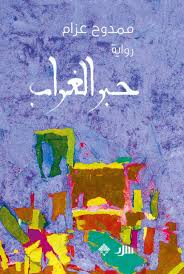
After losing hope of proving the existence of the Sumakiat Library, which disappeared under mysterious circumstances in the early 1960s, one of her books appears almost out of nowhere, more than twenty kilometers away from its location and disappearance: the complete book “Al-Shawqiyyat,” and on its inner page is written “Sammaqiyat Library.” ", and a serial number was entered. This book revives Tawfiq Al-Khadra's hope in proving the existence of the library, which has actually become an imaginary library that never existed, because everyone denied its existence in the first place. He searches for the rest of the books, traces how they reached the people he found them with, and little by little the facts of what happened on that distant day in which the library disappeared and Faris Abu Lawz was killed are revealed to him.
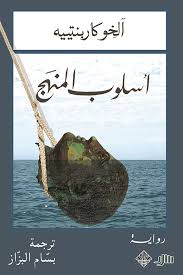
The story of another dictator from Latin America, except in this novel he is an educated, enlightened dictator who befriends an academic, a poet, and a writer in Paris, attends opera performances, and decorates his palace with artistic paintings. But despite his “high culture,” he is corrupt and corrupt. He does everything to remain in power, plotting conspiracies and drawing plays, because he knows that without the throne he is worth nothing. Carpentier wanted the title of his novel, “The Discourse of the Method,” to be compatible with the title of Descartes’ book: “The Discourse of the Method.” While the philosopher lays down his theory of the method with his hands in cold water, its application appears here hot and burning, poisoned with iron, blood, and fire. The Cuban writer addresses the personality of the tyrant from the inside, contemplating his psyche, entering into the recesses of his mind, with writing that is bold in its conceptions, rich in its fertile details, and innovative in its techniques. List it.
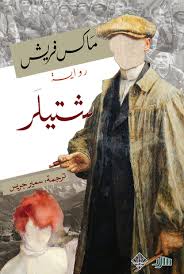
“I am not Stiller!” The protagonist begins his writing with this phrase, and writes seven notebooks in order to prove that he is not who everyone insists he is. He confesses to unsolved murders, and tells the details of his previous life in Mexico and America among the cowboys and dock workers, but nevertheless, Stiller's wife, friends, and brother adhere to their opinion, while the hero of the novel writes what they say in his notebooks and comments on it, the life of that sculptor, and his emotional relationships. And marriage, and about art and artists and the ups and downs of their lives. "Stieler" is considered one of the literary pearls, and one of the most important contemporary novels written in German. It is an exceptional novel about modern man and his fractured relationship with identity, and about the self-image of oneself and others. It is a novel written with tenderness and a complex artistic structure that is convincing and enjoyable at the same time. It highlights the exceptional ability of the famous Swiss writer, Max Frisch.
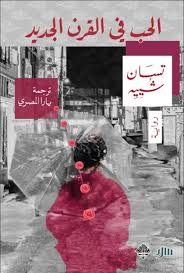
The characters of this novel are searching for a different life. Some of them leave their work in the cotton factory and become sex workers in the hot springs resort, while one of them enters prison of his own accord in search of calm. A third goes to her hometown, discovering strange caves and tunnels, while a fourth chooses a refuge in A rural province, where Chinese herbs are used in traditional medicine. These characters are intertwined in multiple emotional and physical relationships, while each of them seems like a mirror of the other, as the story of each of them begins where the previous one left off, in a fluid temporal structure. In this novel, which was longlisted for the International Booker Prize in 2019, Tsun Shieh writes about the meaning of life in its relationship to love, sex, birthplace and work, and about the vanishing border between life and death, between wakefulness and sleep, in a blurry and turbulent plot full of sensual descriptions and vivid metaphors. , its aspects resonate with echoes of magical realism.

Khaled is a young man in his thirties who graduated from the College of Fine Arts. He failed to travel from his city of “fairies,” which was closing in on him from all sides, so he had no choice but to work as an employee in a bookstore, through which he practiced an additional, secret job in which he sold his works of fiction. Life would have gone better if one could keep the secret, but as Faraj, Khaled’s father, says: “No matter how much you hide it, the secret will wake up inside you one day, and then it will continue to burrow into your soul until it is released to the world.” Thus, Khaled’s choices in life soon put him in the face of “Khalil Nayef,” a lawyer with wide influence who wants to enter the world of writing. Within a suspenseful context and a rapid pace, Tamim Heneidi dives into the scenes of the relationships between writers, publishers, and bookstore owners, and sheds light on the way in which culture may be used to polish the image of the political class created by the war. But can books perform a task like this?
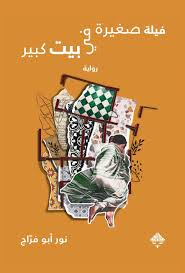
Owned houses and others are rented, fleeting and temporary dwellings, between which the writer moves across different Syrian cities, turning the houses into stations, or rest stops that allow her to contemplate the context of her life, her choices, and the source of her desire to remain between closed doors. The subjective nature of the book turns it into a kind of personal testimony, but Nour Abu Farraj is betting that her memories may intersect to a large degree with the experiences of middle-class young men and women from the 1980s generation in Syria, who lived a relatively stable life, before the war came and made a difference in their context. Forcibly expel them from their safe spaces. In the face of the transience and uncertainty that war brings, description becomes a tribute to the fleeting; This is why the book tries to remind readers of the long time it takes to build a house, in the symbolic or structural sense, but it nonetheless warns them against becoming captives to the place, and encourages them to carry their homes as souvenirs, or small luggage on their long journey.
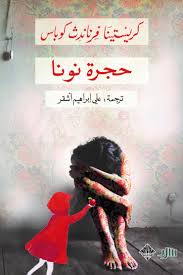
Cristina Fernandez Cubas does not introduce her heroines to us easily. She takes us on straight paths at first glance, and at one moment, she turns everything upside down. We discover that her characters are torn between two realities, the separation between which is very precise: the fixed reality, and the imagined or delusional reality. . One of them overpowers the other at times, and at other times a reconciliation occurs between them, without us knowing which of them truly exists, and which of them does not exist. “Nona’s Room,” which won the Critics’ Prize in Spain (2015) and the National Narrative Award (2016), is a magnifying glass through which we see the complexities of the human soul and the mystery that surrounds our lives without us always succeeding in observing and understanding it. In it, “Cubas” reconsiders childhood and maturity. And loneliness and family, revealing to us that nothing is really as it seems, writing all of this in transparent language and in a unique style that gives it a detective touch, with skill and lightness.

Enter your address and we will specify the offer for your area.